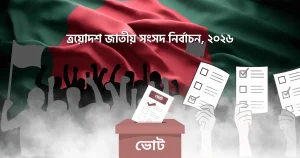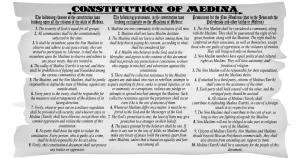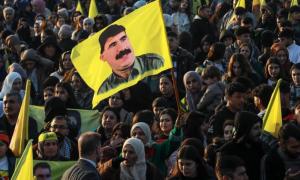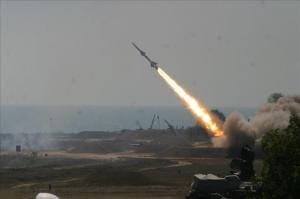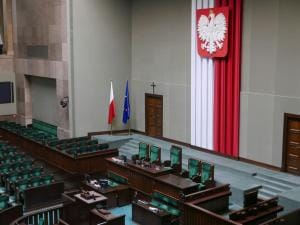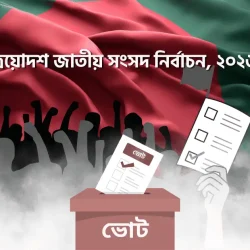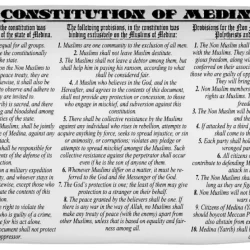The Israeli-Palestinian conflict has been one of the most enduring and complex conflicts of our time, spanning several decades and claiming countless lives on both sides. The conflict has been marred by violence, displacement, and the violation of basic human rights. Despite numerous attempts to resolve the conflict, including peace talks and agreements, the tyranny of Israel remains intractable. The conflict is further complicated by the involvement of various actors, including the United States, other Western powers, and regional players.
Since September 29, 2000, the Israeli-Palestinian conflict has resulted in the deaths of 7,454 individuals, according to the Israeli human rights group B’Tselem. Among the 6,371 Palestinian fatalities, 1,317 were minors, and 2,996 were non-combatants. Palestinian attacks caused the deaths of 1,083 Israelis, including 741 civilians and 124 minors. In 2022, over 170 Palestinians, including 30 children, were killed in the occupied West Bank and East Jerusalem. At least 29 Palestinians have been slain as of January 2023, 5 of them minors. On March 7, 2023, Israeli forces killed six Palestinians and injured 11 others during a raid in Jenin, in the occupied West Bank. This article aims to explore the various facets of the conflict, including the root causes, the role of key actors, and potential solutions to bring about lasting peace and justice for all parties involved.
What is an apartheid State?
Apartheid is a term used to describe a system of institutionalized racial segregation and discrimination that was practiced in South Africa from 1948 to 1994. Under apartheid, the white minority government enforced laws that stripped black South Africans of their rights, opportunities, and resources, while promoting and preserving the privileges and power of white citizens. The apartheid system was characterized by racial classifications that determined access to education, jobs, housing, and other resources, as well as the physical separation of people based on race.
Read Dictatorship and Human Rights: The Ongoing Struggle for Freedom
An apartheid state, therefore, is a government or society that practices institutionalized racial segregation and discrimination similar to the system used in South Africa. It is a state that enforces laws and policies that promote and maintain the privileges and power of one racial group over another, while systematically oppressing and marginalizing the minority group.
How apartheid Israel has been created in the heart of Palestine?
Apartheid is defined as a system of institutionalized racial segregation and discrimination. Sadly, this definition aptly describes the current state of affairs in Israel. The Israeli government has been systematically implementing policies that discriminate against the Palestinian people. These policies include restrictions on movement, access to resources, and employment opportunities.
Israel’s status as an apartheid state in the heart of Palestine is a complex and deeply rooted issue. The establishment of Israel in Palestine has a long and complicated history, dating back to the aftermath of World War I and the collapse of the Ottoman Empire. The Balfour Declaration in 1917 promised the establishment of a “national home for the Jewish people” in Palestine without the consent of the indigenous Palestinian population. After the Second World War, the United Nations partitioned Palestine into two states, one for Jewish people and one for Palestinians. However, this partition plan was rejected by the Arab countries and Palestinian leaders, leading to a series of conflicts and wars between Israel and its Arab neighbors. The 1948 Arab-Israeli War resulted in the displacement of hundreds of thousands of Palestinians from their homes, known as the Nakba or “catastrophe” in Arabic.
Since then, Israel has continued to occupy Palestinian land and displace Palestinian people, leading to ongoing conflict and resistance. Israel has been implementing apartheid policies against the Palestinian people living in the occupied territories of the West Bank and Gaza Strip, which include restrictions on movement, access to resources, and employment opportunities. Palestinians have also been subjected to forced evictions, land confiscation, and discriminatory laws, limiting their access to education, healthcare, and other basic services. The Israeli citizenship law also grants different rights to Jewish and non-Jewish citizens, reflecting Israel’s status as an apartheid state. These policies have been widely condemned by international human rights organizations and activists.
The Palestinian people have responded to Israel’s occupation and apartheid policies with resistance, including protests, strikes, and armed struggle. The international community has also responded with condemnation and calls for Israel to end its discriminatory policies and recognize the rights of the Palestinian people. However, a solution to this longstanding and complex issue remains elusive.
The History of the Apartheid Regime in Israel
The latest news from Al Jazeera on 7 March 2023 reports that Israeli forces have killed at least six Palestinians and wounded 11 others in a raid in the West Bank city of Jenin. Witnesses told AFP news agency that a house was besieged by Israeli forces and hit with rockets. This incident adds to the already long history of apartheid in Israel. The roots of apartheid in Israel can be traced back to the displacement and marginalization of Palestinian people.
The Israeli occupation has had a severe impact on the Palestinian people, including their restricted access to resources, freedom of movement, and human rights. The recent raid in Jenin is just one example of the Israeli forces’ continuous assault on the Palestinian population. The raid resulted in the death of six Palestinians and the injury of 11 more, including two with serious injuries.
The situation in the West Bank has been volatile, with settlers carrying out attacks on Palestinians and Israeli forces carrying out raids on Palestinian communities. Overnight on Monday, Israeli settlers attacked Palestinians in the village of Huwara, the scene of a violent rampage last week by dozens of settlers seeking revenge for the shooting of two Israelis as they sat in their car. At least five Palestinians have been killed by settlers so far in 2023, compared to at least 68 Palestinians killed by Israeli troops. But how it all started?
The history of apartheid in Israel is a complex and troubling topic that has been the subject of much debate and controversy. In the late 1800s, Zionist Jews began immigrating to Palestine, leading to tensions between the Jewish and Palestinian populations. Following World War II and the establishment of Israel in 1948, which involved the displacement and marginalization of the Palestinian people, who have been living in the region for centuries. Such situation leading to what is now known as the Nakba, or catastrophe.
The displacement of the Palestinians was not an accident but a deliberate policy of the Zionist movement, which aimed to create a Jewish state in Palestine. The Zionists relied on violence, ethnic cleansing, and massacres to force the Palestinians to leave their land, homes, and villages. According to the United Nations, around 700,000 Palestinians were expelled from their homes during the 1948 Nakba or Catastrophe, with many never being able to return. This displacement and marginalization of the Palestinian people laid the foundation for the system of apartheid that exists in Israel today.

After the establishment of Israel, the state implemented discriminatory policies against the Palestinian minority that remained inside the state. These policies included land confiscation, house demolitions, and restrictions on movement and political rights. The Palestinians who became citizens of Israel were subjected to a system of institutionalized discrimination known as “Israeli apartheid.” They faced discrimination in all aspects of life, including education, employment, housing, and health care.
The Israeli occupation of the West Bank and Gaza Strip in 1967 added another layer to the apartheid system. The Israeli military imposed a regime of military rule on the Palestinians, which included checkpoints, roadblocks, and curfews that restricted their freedom of movement. Israel also built illegal settlements on Palestinian land, which further displaced the Palestinian population and undermined their right to self-determination.
Under Israeli occupation, Palestinians are subject to a wide range of restrictions on their access to resources, freedom of movement, and human rights. The Israeli government has built a network of settlements in the occupied territories, which are illegal under international law, and has implemented a system of checkpoints and barriers that restrict the movement of Palestinians. Palestinians have been denied access to basic resources such as water, land, and electricity.
The Israeli government has confiscated Palestinian land and built illegal settlements, leaving Palestinians with limited space to build homes and farms. This has led to overcrowding, poverty, and unemployment among Palestinians. The Israeli military has also been responsible for the killing, injuring, and displacement of thousands of Palestinians.
Read What Does Mean By Human Rights?
According to recent data and statistics, Israeli forces have killed and injured thousands of Palestinians, including many civilians. In 2020 alone, Israeli forces killed over 200 Palestinians, including 41 children. According to the Palestinian Centre for Human Rights, Israeli forces killed 187 Palestinians, including 41 children and 10 women, in the Gaza Strip during the 11-day war in May 2021. In addition, Israeli forces injured 1,100 Palestinians and displaced more than 75,000 from their homes. The Israeli military has also killed dozens of Palestinians in the West Bank in recent years, including during the latest raid in Jenin.
The United Nations Office for the Coordination of Humanitarian Affairs (OCHA) reports that as of February 2022, there are over 4.9 million Palestinian refugees registered with the United Nations Relief and Works Agency for Palestine Refugees in the Near East (UNRWA). The majority of these refugees live in the West Bank, Gaza Strip, and neighboring countries such as Jordan and Lebanon.
The impact of apartheid in Israel extends beyond the physical violence inflicted on the Palestinian people. The Israeli government has also implemented a system of institutional discrimination against Palestinian citizens of Israel, who are denied equal access to resources and opportunities. This discrimination has been well-documented, with Palestinians facing higher rates of poverty and unemployment than their Jewish counterparts.
The role of Israel’s allies, the United States and NATO to occupy Palestine
The United States and NATO have been complicit in Israel’s tyrannical actions towards Palestine. The United States is Israel’s biggest ally and has been providing military aid to Israel for decades. The United States has provided over $146 billion in military aid to Israel since 1949. This aid has helped Israel maintain its military superiority over Palestine, enabling it to continue its oppressive policies.
The relationship between the United States and Israel has been a significant factor in the history of the Middle East, particularly in the ongoing conflict between Israel and Palestine. The United States has been Israel’s most significant ally, providing billions of dollars in military and economic aid to Israel over the years. This relationship has been criticized by many for supporting Israel’s apartheid policies toward Palestinians and its brutal military operations.
The United States began providing aid to Israel in the late 1960s, and since then, the US has become Israel’s most significant military and economic benefactor. According to the Congressional Research Service, the US has given Israel over $146 billion in military aid since its inception, making Israel the largest recipient of US military aid in history. This aid has included weapons, ammunition, and other military equipment that have been used by Israel in its military operations against Palestinians.
Read Historical Development Of Human Rights
Furthermore, the United States has also provided diplomatic support for Israel at the United Nations and other international organizations. The US has repeatedly vetoed UN Security Council resolutions critical of Israel, and the US government has often defended Israel’s actions against the Palestinians, even in cases where those actions have been condemned by human rights organizations.
Recent data shows that the US continues to provide significant military aid to Israel. In 2020, the US signed a $38 billion, ten-year military aid package with Israel. This aid has been used to fund Israel’s military operations in the occupied territories, including the construction of illegal settlements and the blockade of Gaza.
NATO has also been involved in the conflict, with many of its member countries providing military aid to Israel. It has played a role in supporting Israel’s military operations against Palestinians. In 2004, NATO and Israel signed a joint political declaration aimed at enhancing cooperation between the two parties. The declaration includes provisions for joint military exercises, the exchange of military intelligence, and other forms of cooperation.

This aid has included weapons, ammunition, and other military equipment that have been used to suppress Palestinian resistance. It is important to note that NATO’s involvement in the conflict violates international law, as it is illegal to provide military aid to an occupying power.
NATO’s support for Israel has been criticized by human rights organizations for legitimizing Israel’s occupation of Palestinian territories and its brutal military operations against Palestinian civilians. In 2014, during Israel’s Operation Protective Edge, NATO announced that it would increase its cooperation with Israel’s military, despite widespread condemnation of Israel’s actions in Gaza.
The role of the United States and NATO in supporting Israel’s tyrannical history toward Palestinians cannot be ignored. The close relationship between the US and Israel has enabled Israel to continue its brutal military operations against Palestinians with impunity, despite widespread condemnation from the international community. The amount of military aid provided by the US to Israel continues to be a significant factor in enabling Israel’s occupation of Palestinian territories and its apartheid policies toward Palestinians. NATO’s support for Israel’s military operations has also been criticized for legitimizing Israel’s actions against Palestinians.
What motivates the United States and others to support Israel’s tyranny and crimes against Palestinians?
There are a variety of factors that contribute to the United States and other countries supporting Israel’s actions toward Palestinians, despite international condemnation of these actions. One of the primary reasons is strategic alliances and geopolitical interests. Israel is a key ally of the United States in the Middle East and provides a strategic location for American military bases and operations. As Noam Chomsky notes, “Israel is a militarized society that is virtually an offshore military base for the United States”.
Additionally, there is a strong pro-Israel lobby in the United States, which exerts a significant influence on American politics and policies toward Israel. This lobby is made up of organizations such as the American Israel Public Affairs Committee (AIPAC), which heavily lobbies members of Congress and the White House to support Israel.
There are also religious and cultural ties between Israel and some Western countries, particularly the United States, which motivates support for Israel. Many Americans view Israel as a democratic and free country that is under threat from hostile neighbors in the Middle East and therefore feel a sense of solidarity with Israel.
However, as Chomsky notes, the reality is far from this idealized image of Israel. He states, “The real Israel is a brutal, militaristic state, with a long and sordid history of human rights abuses and war crimes”. Despite this, the United States and other countries continue to support Israel’s actions, which perpetuate the oppression of Palestinians and violate international law.
Read Noam Chomsky’s Who Rules the World?
The motivation behind the United States and other countries supporting Israel’s tyranny and crimes against Palestinians can be attributed to strategic interests, pro-Israel lobbying, religious and cultural ties, and an idealized image of Israel. However, as Chomsky argues, this support is misguided and ignores the reality of Israel’s actions toward Palestinians.
Should not America and its allies review their policy to support apartheid Israel?
The United States and NATO have played a significant role in supporting Israel’s apartheid occupation of Palestine. For decades, the US has provided Israel with unwavering political, economic, and military support. This aid has been used to maintain Israel’s military superiority in the region, allowing it to continue its occupation and human rights abuses against the Palestinian people.
In 2011, NATO intervened in the Libyan civil war, which led to the overthrow of Libyan leader Muammar Gaddafi. This intervention was supported by Israel, as Gaddafi had provided financial support to Palestinian resistance groups. Additionally, NATO has provided training and equipment to the Israeli military, further enhancing Israel’s military capabilities.
The US and NATO’s support for Israel’s apartheid occupation are not only morally reprehensible, but it is also in violation of international law. The Fourth Geneva Convention prohibits the transfer of an occupying power’s civilian population into the territory it occupies, yet Israel has continued to build illegal settlements in the West Bank and East Jerusalem. The US and NATO’s support for Israel’s settlement expansion and occupation is therefore a violation of international law.
Furthermore, the US and NATO’s support for Israel’s apartheid policies undermine their claims to be champions of democracy and human rights. It is hypocritical to claim to support democracy and human rights while providing military aid to a state that denies basic rights to millions of people based on their ethnicity.
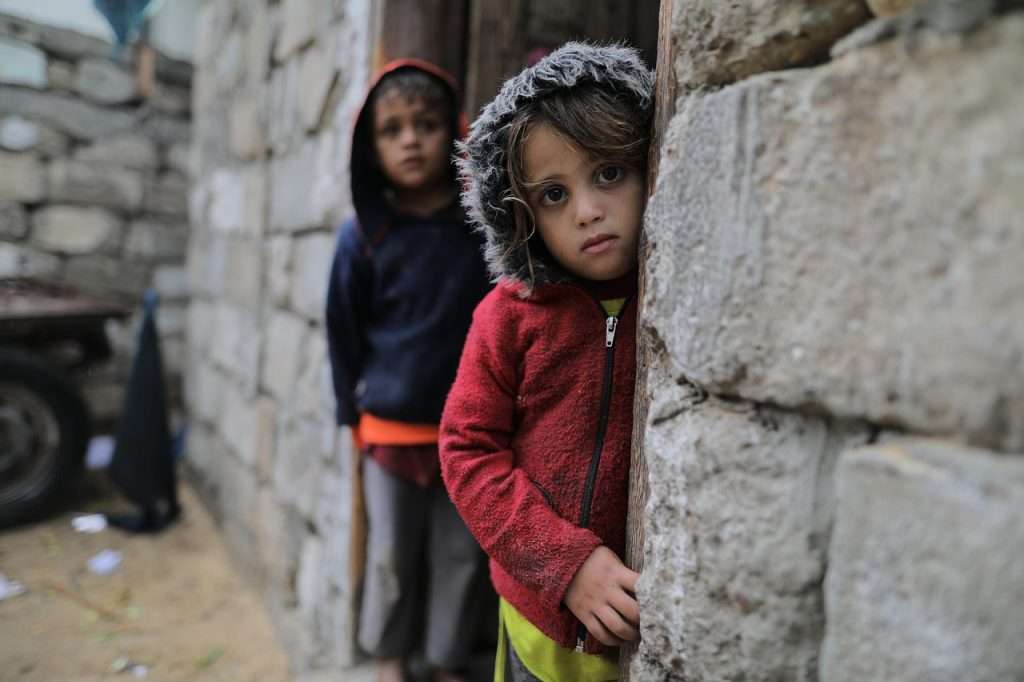
Noam Chomsky, a renowned political analyst, and linguist have long been critical of the US and NATO’s support for Israel’s apartheid occupation. In his book “Gaza in Crisis,” he describes the US as “providing the economic, military, and diplomatic support for the Israeli occupation and domination of Palestine.”
Chomsky argues that the US and NATO have “provided the military aid, technology, and diplomatic cover for Israel’s occupation and oppression of the Palestinian people.” He also criticizes the mainstream media’s coverage of the conflict, stating that it “echoes the propaganda line of the Israeli government, virtually without exception.”
In an interview with Democracy Now! Chomsky stated, “The United States and NATO are fully complicit in Israel’s crimes against the Palestinian people. The US provides the crucial diplomatic, military, and economic support that makes these crimes possible.” He also highlighted the fact that the US provides over $3 billion annually in military aid to Israel, despite its human rights abuses against Palestinians.
Chomsky’s critical analysis highlights the complicity of the US and NATO in Israel’s apartheid occupation and their role in perpetuating the ongoing human rights violations against the Palestinian people.
Why Muslim states are silent on the Palestine issue?
There are various reasons why many Muslim states remain silent on the Palestine issue. One reason is the fear of retaliation from Israel or its allies, including the United States. Many of these states rely on US aid and military support, and speaking out against Israel’s actions could result in economic and political consequences. Additionally, some countries may view the Palestine issue as a sectarian issue rather than a human rights issue, leading to a lack of collective action.
Read Protection and Promotion of Human Rights and its procedures
Furthermore, some Muslim states prioritize their regional interests over the Palestinian cause. For example, countries such as Saudi Arabia and the United Arab Emirates have recently normalized their relations with Israel, despite ongoing human rights violations against Palestinians. These countries view Israel as an ally in their fight against Iran and the regional instability caused by ongoing conflicts.
Another factor is the division and lack of unity among Muslim states. The Palestine issue has historically been a unifying force among Muslim countries, but political and sectarian divisions have weakened this collective voice. For example, the ongoing rivalry between Saudi Arabia and Iran has led to a divide in the Muslim world and a lack of consensus on how to address the Palestine issue.
Noam Chomsky, an American linguist and political activist, has criticized the silence of many Muslim states on the Palestine issue. In an interview with Al Jazeera, Chomsky stated, “The reason for the lack of support is that the US is intimidating and threatening them [Muslim states] if they don’t go along with US-Israeli policies. And the Arab dictatorships are afraid of their people.”
Overall, the silence of many Muslim states on the Palestine issue is a complex issue influenced by various factors, including economic interests, regional politics, and lack of unity.
What is the solution to the ongoing conflict?
The response of Palestinians to Israel’s occupation and oppression has taken various forms over the years, ranging from peaceful protests and civil disobedience to armed resistance. Palestinian political factions, including Hamas and Fatah, have pursued different strategies for achieving their goals, with Hamas advocating for armed resistance and Fatah advocating for negotiations and diplomatic efforts. In recent years, the Palestinian Authority has engaged in diplomatic efforts to seek recognition as a state and gain support from the international community, while Palestinian activists and organizations continue to engage in protests and civil disobedience to raise awareness about their cause. Despite the different approaches, the underlying message from Palestinians remains consistent: the demand for self-determination and the right to live in peace and dignity on their ancestral land.
However, any conflict or issue must be resolved considering the reason for such conflict and the demands of the parties of such conflict. We have to dive into the conflict first, trace it back to the beginning, and discuss it rationally. Any solution to the Israeli-Palestinian conflict will require a willingness from both sides to compromise and make difficult concessions. It will also require the support of the international community and a commitment to justice and human rights for all. Otherwise, we will find ourselves in an illegal, immoral, apartheid regime like Israel.
Since the creation of Israel in 1948, there have been ongoing conflicts between Israel and Palestine over territory, borders, and sovereignty. Over the years, various proposals and efforts have been made to address the issue and find a solution that would be acceptable to both sides.
One of the earliest proposals came from the United Nations in 1947, which called for the partition of Palestine into two states, one for Jews and one for Arabs. However, this plan was rejected by the Arab states and the Palestinians, who wanted a single, unified state.
Society’s Resistance to Wisdom and Intelligence: A Paradox
In the following years, several wars were fought between Israel and its Arab neighbors, including the 1967 Six-Day War, which resulted in Israel’s occupation of the West Bank and Gaza Strip, territories that were previously controlled by Jordan and Egypt, respectively.
In the 1970s and 1980s, the Palestine Liberation Organization (PLO), led by Yasser Arafat, gained international recognition as the legitimate representative of the Palestinian people. The PLO put forward various proposals for a solution to the conflict, including a two-state solution, but these were rejected by Israel.
In 1988, the Palestinian Authority (PA) declared the establishment of an independent Palestinian state in the West Bank and Gaza Strip with East Jerusalem as its capital. This declaration was based on the principle of a two-state solution, in which Israel and Palestine would coexist peacefully as two separate and sovereign states.
Since then, the PA has participated in numerous peace negotiations with Israel, including the Oslo Accords in the 1990s and the more recent negotiations mediated by the United States. The PA has consistently called for an end to the Israeli occupation of the West Bank and Gaza Strip, the removal of Israeli settlements, and the establishment of a sovereign and viable Palestinian state.
However, the PA’s ability to negotiate effectively has been hindered by the continued expansion of Israeli settlements in the West Bank and the ongoing conflict with Hamas, the Islamic militant group that controls the Gaza Strip. Additionally, the PA’s legitimacy and authority have been questioned by some Palestinians due to allegations of corruption and authoritarianism.
In recent years, the PA has faced criticism for its approach to the conflict, with some arguing that it has become too reliant on negotiations and has not done enough to pursue other avenues for achieving Palestinian rights and sovereignty.
What proposition do Muslim states make?
There have been various proposals and efforts by Muslim states to address the Palestine issue. One such proposal is the Arab Peace Initiative, which was first proposed by Saudi Arabia in 2002 and later endorsed by the Arab League. The initiative calls for Israel’s withdrawal from the occupied territories, the establishment of a Palestinian state with East Jerusalem as its capital, and a “just solution” to the issue of Palestinian refugees.
In addition, many Muslim states have provided financial and humanitarian aid to Palestinians, particularly those living in the Gaza Strip. For example, Qatar has pledged millions of dollars in aid to Gaza, while Turkey has provided medical assistance and other forms of support. Some countries have also supported the Boycott, Divestment, and Sanctions (BDS) movement, which aims to pressure Israel to end its occupation and apartheid policies.
However, it is worth noting that the Muslim world is not monolithic and there are differing opinions and approaches to the Palestine issue. Some states have normalized relations with Israel, while others have been more vocal in their condemnation of Israel’s actions. Ultimately, any solution to the Palestine issue will require a collective effort and cooperation from all parties involved.
Does Abraham Accords make sense to the conflict?
The Abraham Accords, signed by Israel, the United Arab Emirates (UAE), Bahrain, Sudan, and Morocco in 2020, are a series of agreements aimed at normalizing diplomatic, economic, and cultural relations between Israel and these Arab countries. The agreements were brokered by the United States under the Trump administration and were signed in 2020.
While the Abraham Accords were hailed as a historic breakthrough in the Middle East, their enforceability as a solution to the Israel-Palestine conflict is still up for debate. Some argue that the Accords have the potential to contribute to stability in the region and create new economic opportunities, while others criticize them for sidestepping the issue of Palestinian statehood and human rights.
One of the main criticisms is that the agreements do not address the core issues of the Israeli-Palestinian conflict, such as the status of the Palestinian territories and the rights of Palestinian refugees.
Some critics argue that the Abraham Accords may even make the situation worse for the Palestinians. They argue that by normalizing relations with Israel, the Arab countries that have signed the agreements have effectively abandoned the Palestinian cause and given up their leverage to push for a just solution to the conflict.
Noam Chomsky: the most heated and unpleasant spokesperson of this Century
Noam Chomsky, a prominent American linguist and political activist, criticized the Accords as a way for the participating countries to advance their interests at the expense of the Palestinians. He argues that the accords do not address the root causes of the conflict and may worsen the situation for the Palestinians. In an interview with Democracy Now, Chomsky stated:
“The UAE and Bahrain are trying to advance their interests. They regard Iran as a threat, and they hope to gain advantages from Israel in dealing with the threat. And Israel is very happy to integrate itself into the region, hoping to gain the advantages of the powerful Gulf states.”
Chomsky also pointed out that the Accords do nothing to address the ongoing displacement and oppression of the Palestinian people:
“What about the Palestinians? Well, they’re disappeared. They’re in the background. That’s the usual way of dealing with the Palestinians. They’re not part of the equation.”
Chomsky has also suggested that the United States should end its military aid to Israel, which currently amounts to billions of dollars each year. He believes that this aid allows Israel to continue its occupation and suppression of the Palestinian people.
However, others argue that the Abraham Accords are a step in the right direction and may create opportunities for further progress on the Israeli-Palestinian issue. They argue that by engaging with Israel and building economic ties, the Arab countries that have signed the agreements may be better positioned to influence Israeli policy towards the Palestinians.
However, it remains to be seen whether the Abraham Accords will lead to any meaningful progress on the Israeli-Palestinian issue. The fact that the agreements were brokered by the United States under the Trump administration, which was widely seen as pro-Israel and hostile to the Palestinian cause, has raised questions about their legitimacy and long-term viability.
Do the two-state solutions fit the conflict between Palestine and Israel?
The two-state solution has been one of the most widely discussed proposals for resolving the Israeli-Palestinian conflict. This solution would involve the creation of an independent Palestinian state alongside Israel, with both states living side by side in peace and security.
Many Palestinians and their supporters have argued that the two-state solution is the only viable option for achieving a just and lasting peace. They argue that this solution recognizes the rights of both Israelis and Palestinians to self-determination and statehood.
Noam Chomsky has written extensively on the Israeli-Palestinian conflict and has offered several suggestions for a possible solution. One of his proposals is for a two-state solution, which involves the creation of a Palestinian state alongside Israel.
Chomsky argues that this solution would require Israel to withdraw from the occupied territories, dismantle illegal settlements, and recognize the rights of Palestinian refugees to return to their homes. He also suggests that the international community should play a role in facilitating negotiations between the two sides.
However, some argue that a two-state solution is no longer a viable option due to the continued expansion of Israeli settlements in the West Bank and the ongoing fragmentation of Palestinian territory. They argue that a one-state solution, in which Israelis and Palestinians live together in a single, democratic state, may be a more realistic and just solution to the conflict.
How about one state for all?
Some argue that a two-state solution is no longer a viable option due to the continued expansion of Israeli settlements in the West Bank and the ongoing fragmentation of Palestinian territory. They argue that a one-state solution, in which Israelis and Palestinians live together in a single, democratic state, may be a more realistic and just solution to the conflict.
The idea of a one-state solution has been proposed as an alternative to the two-state solution. It envisions a single democratic state in which both Israelis and Palestinians would have equal rights and share power.
However, this solution is controversial and has been met with resistance from both sides. Many Israelis fear that a one-state solution would threaten Israel’s identity as a Jewish state and lead to the end of its existence as a homeland for the Jewish people. Many Palestinians, on the other hand, are skeptical that Israel would allow them equal rights and fear that they would continue to face discrimination and oppression.
To achieve a one-state solution, both sides would need to agree to share power and work together to build a democratic, multicultural society. This would require a significant shift in attitudes and a willingness to compromise and make difficult concessions.
Read The Universal Declaration of Human Rights
Some proponents of the one-state solution argue that it could be achieved through grassroots movements and civil society initiatives, rather than relying on governments to lead the way. They suggest that initiatives such as joint schools, community centers, and economic projects could help build bridges between Israelis and Palestinians and create a shared sense of identity.
Ultimately, any solution to the Israeli-Palestinian conflict will require a willingness from both sides to compromise and make difficult concessions. It will also require the support of the international community and a commitment to justice and human rights for all.
The world should stand against the apartheid regime of Israel
The situation in Palestine is dire, and the Israeli government’s actions toward the Palestinian people are nothing short of tyrannical. The aid provided by the United States and NATO has only served to perpetuate this oppression. The human cost of Israel’s policies toward the Palestinian people has been significant and devastating.
Since the creation of Israel in 1948, the Palestinian people have endured decades of displacement, occupation, and violence, which has resulted in countless human rights violations and casualties.
The displacement of Palestinians from their homes began in 1948 and has continued to this day. According to the United Nations Relief and Works Agency (UNRWA), there are over 5 million registered Palestinian refugees worldwide, many of whom have been living in refugee camps for generations.
The situation in Gaza is particularly dire, with over 2 million Palestinians living in a densely populated area that has been under a crippling blockade for over a decade. The lack of access to necessities, such as clean water, food, and medical supplies, has had a devastating impact on the health and well-being of the population.
The ongoing displacement, occupation, and violence have resulted in countless human rights violations and casualties, affecting generations of Palestinians and Israelis alike. It is time for the international community to take action and hold Israel accountable for its actions. We must take action to ensure that the Palestinian people obtain the justice and freedom they deserve.


